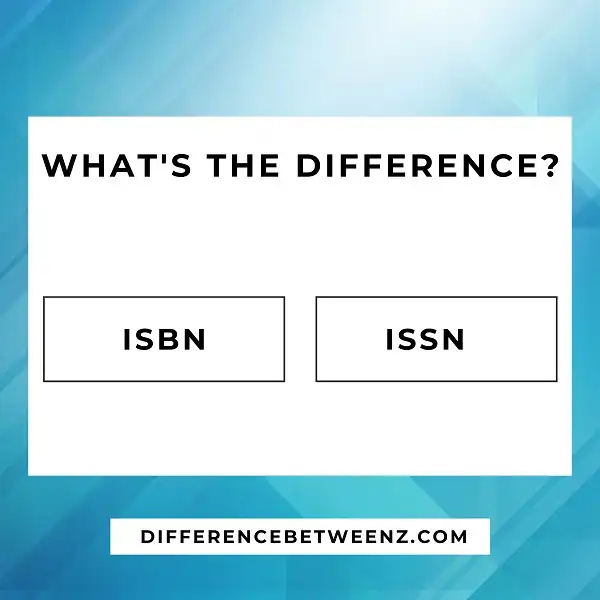The International Standard Book Number (ISBN) and the International Standard Serial Number (ISSN) are both international standards used to uniquely identify books and serial publications, respectively. While they share some similarities, there are also key differences between the two identifiers. In this post, we’ll take a closer look at those differences and explore how each is used.
What is ISBN?
ISBN stands for International Standard Book Number. It is a unique 10 or 13-digit number assigned to every book to identify it. The ISBN is used by libraries, booksellers, and distributors to purchase, order, and catalog books. It is also used to track sales and protect copyrights. ISBNs were first introduced in the late 1960s, and they have been mandatory for all new books since 2007. Every ISBN is assigned to a specific publisher and can only be used by that publisher. ISBNs are not transferable, which means that they cannot be sold or reused after a book goes out of print.
What is ISSN?
ISSN stands for International Standard Serial Number. It is a unique identifier for magazines, journals, and other serial publications. ISSNs are assigned by a central authority, and they are used to help keep track of serial publications and ensure that they can be easily found by readers. ISSNs can be found on the spines of magazines and journals, and they are often included in library catalogs and database searches. In addition to ISSNs, manyserial publications also have ISMNs (International Standard Music Numbers), which are used to identify music recordings and scores.
Difference between ISBN and ISSN
The International Standard Book Number (ISBN) is a unique numeric commercial book identifier. Publishers assign ISBNs to commercial books. An ISBN identifies the book seller and the title, edition, and volume of a commercial book. The International Standard Serial Number (ISSN) is a unique eight-digit number used to identify a print or electronic periodical publication. The ISSN is especially useful for libraries where more than one title may have the same title. For example, ” Newsweek” and “Newsweek” (the weekly newsmagazines) are two different publications and would have two different ISSNs. If a newspaper is published in more than one city, each edition will have its own ISSN. Magazines that are also issued in braille or on audio tape will also have their own ISSNs. The ISBN and ISSN are both important identification numbers, but they serve different purposes.
Conclusion
That’s all for today! We hope you now have a better understanding of the difference between ISBN and ISSN.


